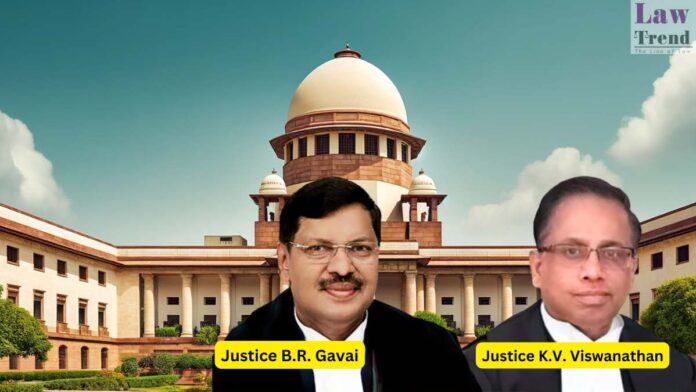In a pivotal judgment, a Supreme Court bench comprising Justice B.R. Gavai and Justice K.V. Viswanathan delivered a powerful verdict underscoring the importance of fair compensation in land acquisition cases. The judgment, in Bernard Francis Joseph Vaz & Ors. v. Government of Karnataka & Ors. [Civil Appeal No. ___ of 2025], addressed delays in compensating
To Read More Please Subscribe to VIP Membership for Unlimited Access to All the Articles, Download Available Copies of Judgments/Order, Acess to Central/State Bare Acts, Advertisement Free Content, Access to More than 4000 Legal Drafts( Readymade Editable Formats of Suits, Petitions, Writs, Legal Notices, Divorce Petitions, 138 Notices, Bail Applications etc.) in Hindi and English.




